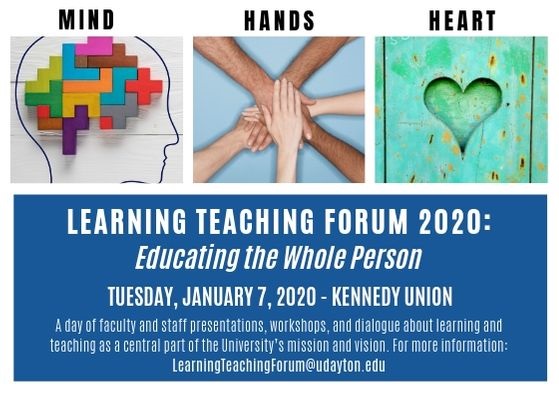Escape Rooms: Experiential Learning in the (French) College Classroom
About the Presenter(s)
Nicola Work, associate professor of French, Department of Global Languages and Cultures
Location
Experiential Learning: Diverse Pedagogical Approaches
Start Date
7-1-2020 1:40 PM
Abstract/Description
Kennedy Union 207
Can you make a college class for example Francophone literature or French Conversation fun and relevant while being in a classroom? Can you engage students in hands-on activities that in addition to reinforcing the subject matter encourage critical thinking, teamwork, and communication skills? Absolutely. Say hello to Escape Rooms - group adventure games in which participants use elements in a locked room to solve riddles and puzzles with the goal of unlocking the room within a set amount of time. Escape games – modeled after Escape Rooms, but modified to not involve locking students into rooms, and widely adaptable to any higher education classroom – offer several educational benefits: Student-centered learning, where students make decisions and take initiatives; active participation and social, creative and physical engagement; and student reflection about and synthesis of the problem-solving process, to name but a few. As an educator who strives to be innovative and cutting-edge, I will illustrate why I decided to add Escape rooms to my teaching repertoire and how they can be beneficial to student learning. Attendees will see examples from my original Escape activities. A behind-the-scenes look will demonstrate step-by-step how to develop successful Escape games for any college class (and any content) and how to effectively implement them. An interactive question-and-answer session about Escape rooms in higher education will round out the presentation.
Goals for Attendees
Participants will understand what Escape Room activities are; Participants will be able to see how Escape Room activities educate the whole person and what different skills they foster; Participants will know how to create Escape Room activities for their own classes - regardless of course content
Escape Rooms: Experiential Learning in the (French) College Classroom
Experiential Learning: Diverse Pedagogical Approaches
Kennedy Union 207
Can you make a college class for example Francophone literature or French Conversation fun and relevant while being in a classroom? Can you engage students in hands-on activities that in addition to reinforcing the subject matter encourage critical thinking, teamwork, and communication skills? Absolutely. Say hello to Escape Rooms - group adventure games in which participants use elements in a locked room to solve riddles and puzzles with the goal of unlocking the room within a set amount of time. Escape games – modeled after Escape Rooms, but modified to not involve locking students into rooms, and widely adaptable to any higher education classroom – offer several educational benefits: Student-centered learning, where students make decisions and take initiatives; active participation and social, creative and physical engagement; and student reflection about and synthesis of the problem-solving process, to name but a few. As an educator who strives to be innovative and cutting-edge, I will illustrate why I decided to add Escape rooms to my teaching repertoire and how they can be beneficial to student learning. Attendees will see examples from my original Escape activities. A behind-the-scenes look will demonstrate step-by-step how to develop successful Escape games for any college class (and any content) and how to effectively implement them. An interactive question-and-answer session about Escape rooms in higher education will round out the presentation.




Comments
Keywords:
student-centered, critical thinking, teamwork, problem-solving, Escape room, hands-on learning, active learning, student engagement